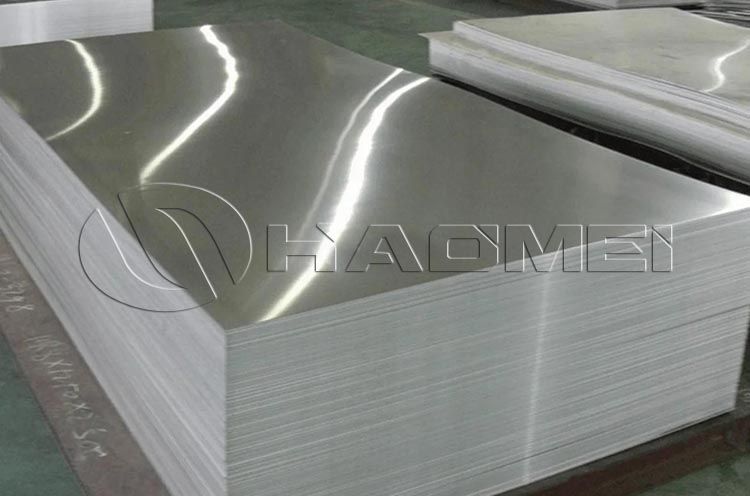
Address: No.14 Waihuan Road, CBD, Zhengzhou, China
Tel: +86-15978414719
Fax: +86-371-65621393
Mail: sale@alumhm.com
Time:2025-09-10
In fields such as aerospace and high-end equipment manufacturing, Al alloy 7075, with its ultra-high strength, excellent toughness, and corrosion resistance, has become a key indicator of a country's industrial manufacturing capabilities. As a representative of the aluminum-zinc-magnesium-copper super-hard aluminum alloy family, the processing quality of 7075 aluminum alloy is directly related to the performance and competitiveness of high-end products. China has now moved from following behind to catching up, and in some areas, even leading.

In the past, the core formula and R&D technology of 7075 aluminum alloy were long controlled by a few developed countries. However, through extensive experimental and theoretical research, Chinese research teams have not only fully mastered the basic composition system of 7075 aluminum alloy but also achieved breakthroughs in precise control of its composition.
In the raw material purification stage, my country has established a complete industrial chain from bauxite smelting to high-purity aluminum production. Advanced electrolytic refining technology has increased the purity of molten aluminum to over 99.999%, effectively reducing the negative impact of impurities on alloy properties. Using a combination of computer simulation and experimental verification, researchers have developed customized compositional adjustments for the ratios of key elements such as zinc, magnesium, and copper in 7075 aluminum alloy. For example, to meet the weight reduction needs of aviation components, zinc content is optimized to enhance strength; to meet the corrosion resistance requirements of marine equipment, the magnesium-copper ratio is adjusted to enhance stress corrosion resistance. This precise control capability has enabled China's 7075 aluminum alloy to break free from its "one-size-fits-all" limitations and meet the customized needs of various high-end applications.
7075 aluminum alloy is extremely challenging to process, especially in key steps such as thick plate rolling, complex profile extrusion, and heat treatment, which place extremely stringent requirements on process equipment and technical parameters. Previously, domestic production of large-scale 7075 aluminum alloy thick plates often faced problems such as uneven grain size and poor surface flatness.
Today, through the introduction of the "isothermal rolling" process and independently developed high-precision rolling mills, my country is now able to stably produce 7075 aluminum alloy thick plates exceeding 200mm in thickness, with grain size deviations controlled within 5% and surface flatness errors less than 0.1mm/m. This fully meets the manufacturing requirements of key components such as aircraft carrier decks and large aircraft wing spars.
In the processing of complex profiles, Chinese companies have overcome the technical difficulties of "integrated extrusion." For example, 7075 aluminum alloy profiles used in high-speed trains previously required welding and assembling multiple components, which not only made strength difficult to guarantee but also posed corrosion risks.
The integrated extrusion process, however, allows complex cross-section profiles to be formed in a single process, eliminating the need for welding and increasing profile strength by over 30%, significantly enhancing corrosion resistance.
Furthermore, during the heat treatment phase, my country has developed a "graded aging" process that precisely controls the precipitation phases in the alloy, enabling the 7075 aluminum alloy to achieve a tensile strength exceeding 570 MPa and a yield strength exceeding 500 MPa, achieving performance indicators that are at the internationally leading level.
High-end applications require near-zero defects for 7075 aluminum alloy. To this end, China has established a comprehensive quality control system covering the entire process from raw materials to processing to finished products. At the raw material stage, laser-induced breakdown spectroscopy (LIBS) technology enables rapid testing of dozens of elements in molten aluminum within 10 seconds, ensuring that the composition meets standards.
During processing, industrial CT and ultrasonic flaw detection technologies are introduced to accurately identify even tiny defects within the plate (such as pores and cracks with a diameter less than 0.2mm), achieving 100% detection coverage. In the finished product stage, electronic universal testing machines and fatigue testing equipment are used to perform random mechanical property checks on each batch of products.
A product quality traceability system has also been established, allowing users to access information such as production batches, process parameters, and test reports through a QR code, achieving full traceability from mine to component.
This rigorous quality control system has earned international recognition for China's 7075 aluminum alloy. Currently, my country's 7075 aluminum alloy products are exported in large quantities to Europe, North America, and other regions, and are widely used in component manufacturing for renowned companies such as Airbus and Boeing, breaking the long-standing monopoly of foreign products in the high-end market. Welcome to inquire 7075 aluminum price from us directly.